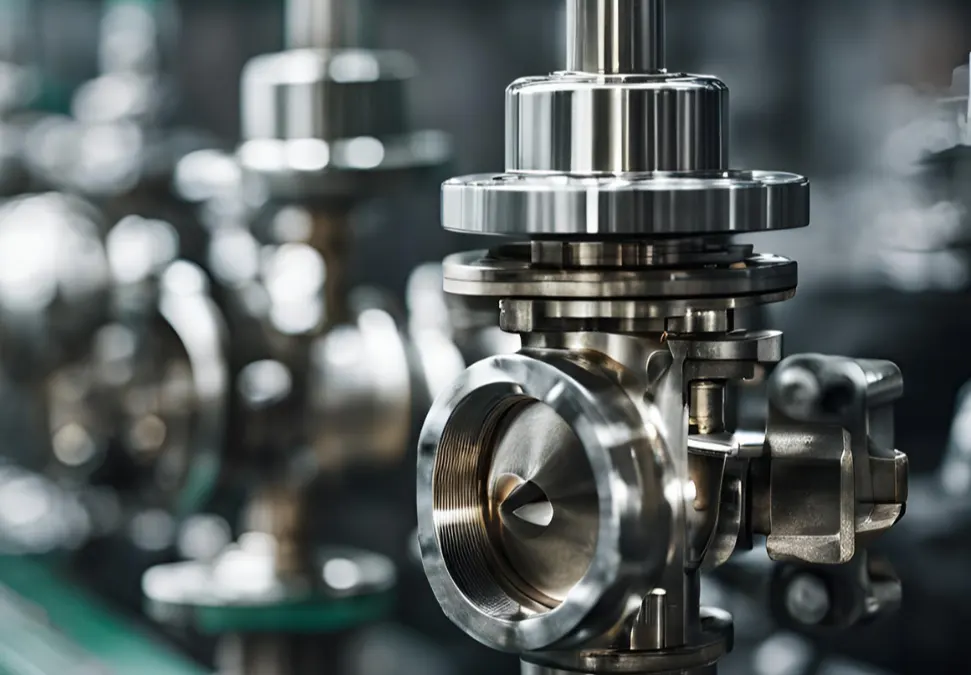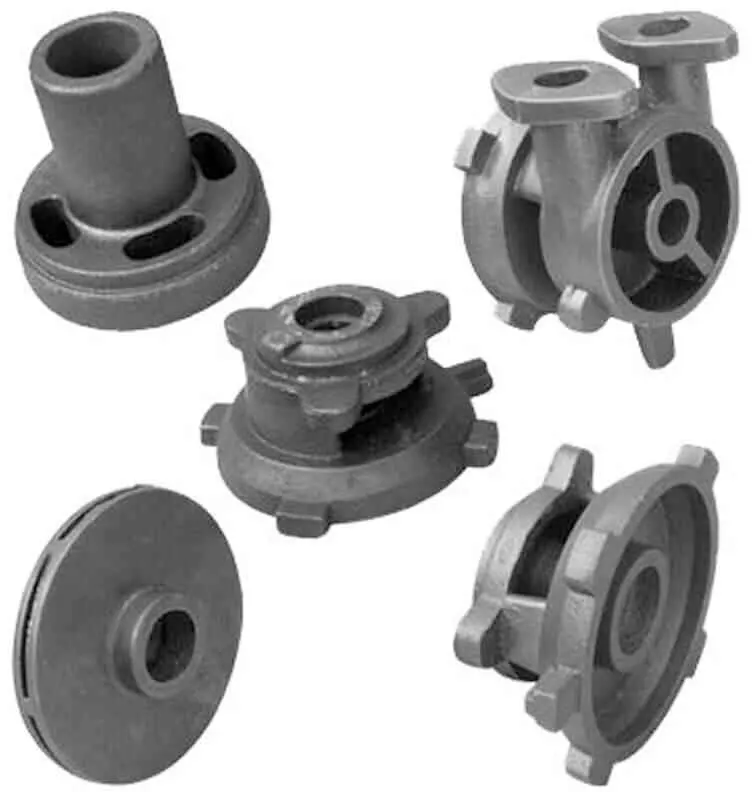
The right selection of the pump casting parts is very important for the longevity, reliability, and efficiency of your pump systems. Be it for centrifugal pumps used in investment casting or any other industrial application, the right decisions you make in sourcing can save you considerable costs in repairs, replacements, and downtime. It's a process not only of technical understanding but also of knowledge in manufacturing capabilities, material properties, and operating conditions that will affect the performance over the lifetime of the pump.
In this article, we are going to delve deep into the steps, factors, and tips in selecting the right pump casting parts, with your holistic view on quality, durability, and performance. During the process, we are going to discuss how such decisions relate to related areas such as investment casting and the importance of choosing the appropriate foundry for production, particularly when parts are outsourced from countries like India, which is vastly into investment castings for pumps manufacturing. By the end of this guide, you will have completely learnt how to go about this process, and what the best choices for your pumping systems would be.
Understanding the Importance of Pump Casting Parts
Prior to emerging into specifics, it is more important to understand the very reason behind the fetching process of selecting the right pump casting parts. Pumps are basic, although major components that span across water treatment and chemical-processing up to manufacturing and oil and gas. Pumps perform vital tasks that include transporting fluids, sustaining system pressure, and controlling flow- whether its liquid or gas. However, even the pump casting parts, be it the impeller, casing, or the shaft sleeve, must be selected with utmost care to ensure they withstand the working environment.
The pump casting parts are absolutely indispensable if the pump is to work; not only for centrifugal process pumps but for many of their variants, the kind and quality of this casting greatly dictates the efficiency and good performance of the pumps: operational and non-operational dependability. Poor part choice or type applied will shorten life through deterioration from wear, with high associated costs for their operation and maintenance, terminating even in cases when the breakdown isn't supposed to happen. As pointed out previously in this argument, the selection process needs some care in determining the pump usage.
Material Selection: Selection of Material for Durability
Material is the most important aspect when it comes to pump casting parts. The material has to be apt for the operating conditions of the pump, including the nature of the fluid being pumped, the temperature, and the pressure it will see. Pump parts are exposed to intense mechanical forces and environmental conditions; thus, the material choice will directly influence the efficiency and lifetime of the pump.
Some of the commonly used materials for casting parts of pumps include:
- Cast Iron: Among all, cast iron has its extensive uses in the production of pump casting parts because it can endure more wear and tear and maintains very good strength. The elements manufactured from cast iron are rather affordable and ensure good performance under normal temperature and pressure conditions for a long period of time. Therefore, in particular, cast iron is right for general purposes centrifugal pumps as well as for water pumps.
- Stainless Steel: When excellent resistance to corrosion is required in application, stainless steel comes into play. The parts of pump casting in the food processing industry, chemical industries, or wastewater treatment are usually benefited by using stainless steel. It has excellent resistance to corrosion, oxidation, and high-temperature environmental conditions for long-term reliability and service life under severe conditions.
- Alloy Steels: Alloy steels were used in the high-pressure and severe-wear pump casting parts. These give the strength, wear resistance, and thermal stability balance. Alloy steel castings are typically used for pumps handling abrasive slurries, harsh chemicals, and high-temperature fluids.
- Bronze and Brass: Due to its excellent machinability, corrosion resistance, and strength, bronze or brass is used as materials in the pump casting parts of some industrial applications. In general, these materials are applied to those pumps dealing with non-acidic or small quantity-transferred fluids where easy casting and resistance to wear are required.
Material choice for a particular application has to be done on the basis of an analysis of requirements. A wrong material for the pump casting part can result in premature failures that may become quite costly to rectify.
Assessment of Operational Conditions
The operating conditions under which the pump has to function are very critical for guiding the right selection of the casting parts of the pump. Whether or not it is being exposed to high pressure, extreme temperature, and/or abrasive substances could make a world of difference to the performance of the casting components.
The casting parts of a pump should be strong enough to resist high pressures or frequent fluctuations in pressure with which the pump may be subjected. For example, a pump utilized in the chemical field dealing with volatile or corrosive fluids will require parts capable of resisting chemical corrosion, if not the pressure.
Similarly, if the pump is to operate under high temperatures, the material of the pump casting parts must be resistant enough not to change shape. Stainless steel or alloys might be needed in this regard owing to their higher resistance to heat.
In addition, pumps handling slurries with abrasive or other kinds of substances that are harsh will need pump casting parts to be highly resistant to wear. Parts exposed to such conditions may be made from alloy steels or high-performance polymers to extend the service life of the pump.
Ensuring Compatibility with the Pump System
Compatibility with the general pump system is another critical factor in choosing pump casting parts: it concerns fitting pump assembly, compatibility with specific pumps, and actual performance.
You must select such parts that the dimensions for casting are within the tolerance limits of the pump. This mismatch can make the pump to perform poorly and result in overall efficiency loss or failure of the pump itself. Additionally, ill-aligned pump castings may eventually cause leakage and vibration with excessive wear.
Certain designs further require specific casting parts for a pump. Such as centrifugal process pumps, which are very common in investment casting require special casting parts that support high rotational speed and can exert very high centrifugal forces. Parts such as impellers and casings must be designed for such dynamic stresses.
Strength and Durability of the Pump Parts
One of the major concerns in the selection of pump casting parts is durability. The durability of a part influences maintenance and operation costs. When you choose parts that wear out faster, or which need replacement now and then, this will increase the operation costs over time. Ensure that materials are of good quality, the manufacturing is done to perfection, and the surface finishes are apt for maximum durability.
One important factor that directly touches durability is surface finish. A smooth finish minimizes friction by reducing wear and tear. Pump casting parts, if rough in finish, will generate more friction, leading to quicker degradation of the casting part as well as those mating components that are inside the pump. In such highly demanding applications, you may opt for surface-treated parts with hardening or coating.
Another factor is the resistance to crack appearances. Pumps may work under cyclic pressure and temperature changes. The casting parts should be resistant to such a wide range of variations concerning cracking or breaking. Generally, alloy steels and stainless steel exhibit resistance to such cracking, thus being perfect for extreme usage.

The Significance of Selecting a Trustworthy Manufacturer
The reliability of the manufacturer of your pump casting parts has a crucial role in guaranteeing their quality and longevity. This means that the manufacturer will be one that will both manufacture quality parts and provide equally high-quality support for the entire life cycle of the part. When looking to source pump casting parts, it is worthwhile to take selective manufacturing firms that serve only cast parts in pumps and have a reputation for producing high-quality items.
When selecting a manufacturer, the following need to be looked at:
- Industry Experience: Always look for a manufacturer that has been in the industry of producing pump casting parts for a while; their experience will greatly influence their understanding of the challenges and knowledge of casting for pumps, thus being able to meet your specific needs.
- Customization Capabilities: All pumps are not standard, and there can be cases where you will need custom pump casting parts specific to your applications. Such manufacturers should provide customization options depending on these needs.
- Quality Certifications: Ascertaining that the manufacturer complies with the internationally set standards of quality, Cloud based quality control ensures the adherence to a firm quality controlling system with certifications-ISO 9001:2015.
- Customer Support: A Manufacturer with good customer support can help you troubleshoot anything with your pump casting parts and give you after-sales assistance when required.
With a well-established casting industry in India, there are many manufacturers that can fulfill the specific requirement of industrial applications. These manufacturers often have competitive pricing and fast lead time, which is why they are quite popular in getting top-quality pump casting parts.
Cost-Effectiveness and Total Cost of Ownership
While cost is constantly analyzed and pondered, it should never be an exclusive leading factor in deciding casting parts for pumps. One must have a long-term view bound with Total Cost of Ownership (TCO) from initial costs and maintenance expenses to downtime costs. A little extra spent upfront on better-quality parts can, therefore, lead to terrific long-term savings because of the durability and reliability these parts provide.
In the case of pump casting parts, the cheaper alternative might deliver lower performance and wear less well than a higher-end counterpart. This may lead to premature equipment failure, which ultimately results in expensive repairs, downtime, and production losses. Hence, when evaluating costs, the creeping cost of the parts should always put in balance with risks of failure.
Working with Your Pump Supplier to Ensure Long-Term Success
After identifying the right pump casting parts and finding the appropriate manufacturer, building a good working relationship with your pump supplier is very important. Keeping the lines of communication open with your supplier will ensure the pump casting parts continue to meet your needs over their lifetime.
By maintenance having a proactive approach, performing timely replacements, and with good knowledge about the operating condition, it would be sure that the pump would be able to give high performance throughout. Regular checks for wear and tear would result in spotting defects before a huge breakdown and, consequently, save hours and dollars.
Conclusion
The selection of pump casting parts has to be all-round and weighed carefully with regard to aspects of material compatibility, strength, and performance criteria, considering the operational mode and economics of expenditure. These tips would make you guarantee a pump's operation to the required extent both in effectiveness, dependability, and reduction in downtimes by the recommendations mentioned above in this article.
Besides, the choice of a manufacturer will determine the quality of pump casting parts. A good manufacturer will ensure that the parts are of high quality and meet the highest standards for performance.
